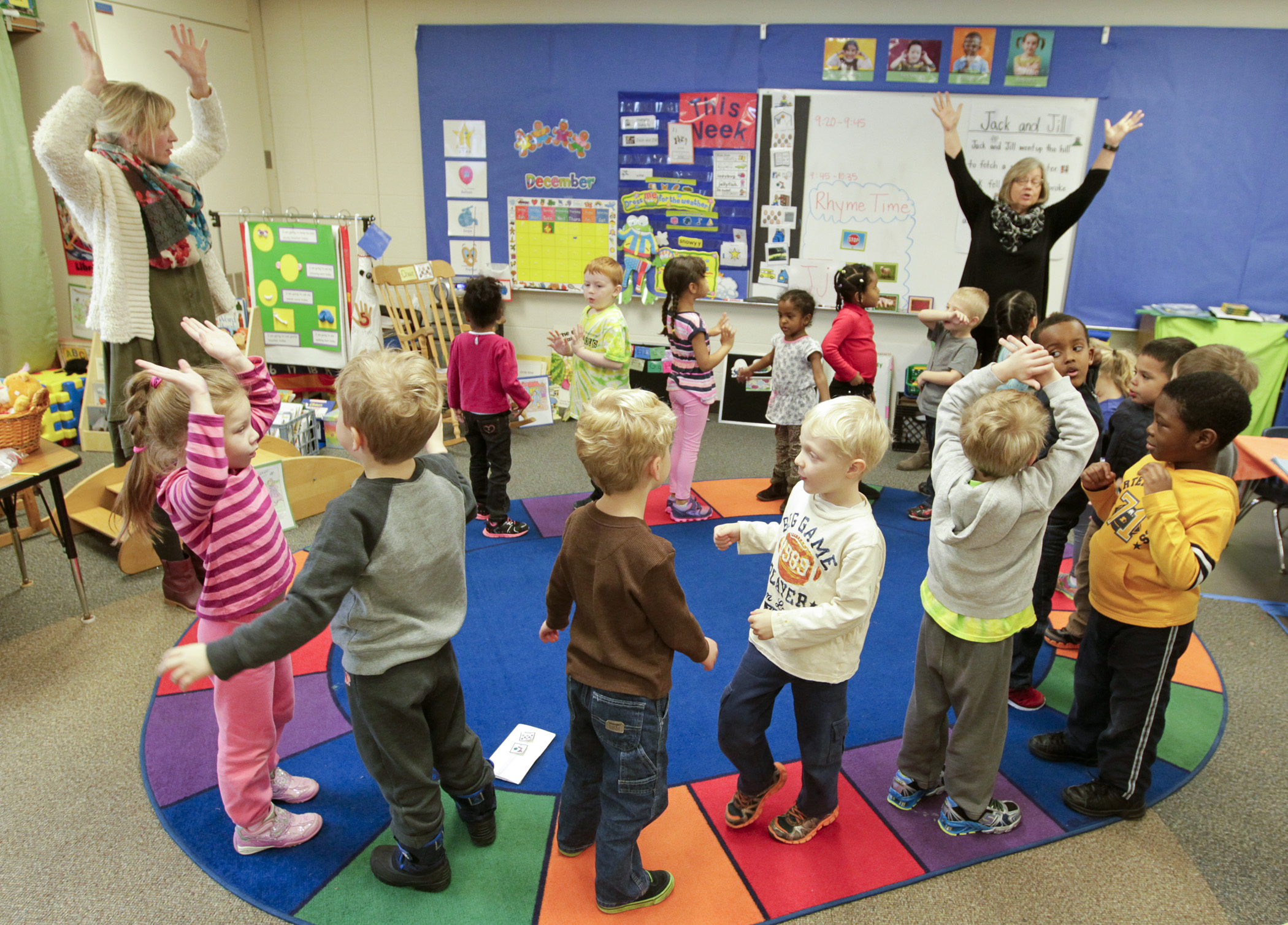Committee OKs omnibus early childhood bill along party lines

A possible $775 million in federal and state funding will be invested in early childhood programs over the next four years, and the omnibus early childhood bill offers one suggestion for how best to spend those dollars.
The House Early Childhood Finance and Policy Committee approved HF2230, as amended, Thursday on an 8-5 party-line vote. It now heads to the House Ways and Means Committee.
Sponsored by Rep. Dave Pinto (DFL-St. Paul), the bill includes increased investments in early childhood scholarships, child care sector stabilization and child care assistance.
Prior to approval, two Pinto amendments were adopted, as well as an amendment offered by Rep. Carlie Kotyza-Witthuhn (DFL-Eden Prairie). Collectively they make technical corrections, modify effective dates for two program reports, and would add a new representative to the proposed Great Start for All Minnesota Children Task Force.
Republican members unsuccessfully offered four amendments.
Preschool teacher licensure
Rep. Lisa Demuth (R-Cold Spring) tried twice to remove provisions pertaining to school-based licensed prekindergarten teachers.
Her first amendment would have eliminated the requirement that all prekindergarten teachers be licensed by the state’s educator licensing board. The second would have removed a requirement that at least one licensed teacher must be in every voluntary preschool classroom.
“The mandate on schools is unnecessary and preempts local control, discussions and negotiations,” Demuth said. “School boards can already require a license for their preschool teachers if that is what the community values.”
DFL members opposed the amendments for a number of reasons. Pinto noted that all K-12 public school educators are licensed, and so extending that requirement to prekindergarten teachers who work within the same buildings provides consistency. Additionally, Rep. Jim Davnie (DFL-Mpls) said it was both a way to further recognize the early education profession, and to create more efficiency across programs.
“School Readiness Plus programs require a licensed teacher; this simply carries that expectation of expertise and knowledge and professionalism to the voluntary prekindergarten programming,” Davnie said.
Child care assistance reimbursement rates notification
The bill would provide a sizeable increase in Child Care Assistance Program provider reimbursement rates over the next four years, primarily paid for with federal coronavirus relief funds.
Rep. Mary Franson (R-Alexandria) unsuccessfully offered an amendment that would provide notification and a disclaimer to providers that the increased reimbursement rates are dependent on the availability of federal funds and may be reduced when those funds are insufficient.
“I think it is very important that we just let the providers know these are federal funds and they may not be there in the future,” she said.
Because Minnesota’s reimbursement rates have lagged behind federal guidelines and those of other states, Pinto said the bill is constructed in a way to create a permanent rate increase, saying it is a commitment that going forward, “we’re actually going to meet this obligation to families.”
Pathway II early learning scholarships
The bill would modify early learning scholarships by lifting the cap on how much money the Department of Education can designate to Pathway II scholarships. These scholarships are awarded to families through a certain provider, as opposed to Pathway I scholarships that are awarded directly to the child and are portable from one provider to another.
Rep. Brian Daniels (R-Faribault) unsuccessfully offered an amendment to maintain the current cap on early childhood Pathway II scholarships and preserve the current prioritization for special populations.
“We have heard from the experts and the advocates that Pathway I is more targeted to high need populations and is simply a better option than Pathway II,” he said.
DFL members opposed the amendment, saying that the Pathway II cap, which was created in 2017, is “artificial and arbitrary.”
While Republicans said there are “many positive aspects to this bill,” they opposed it due to the rejection of their proposed amendments.
“I was really hoping we could have bipartisan support,” Franson said.
While he understood the concerns members may have with a “few aspects” of the bill, Pinto argued that the good components of the bill “overwhelm anything you may have particular concerns about.”
Related Articles
Search Session Daily
Advanced Search OptionsPriority Dailies
Legislative leaders set 2026 committee deadlines
By Lisa Kaczke Legislative leaders on Tuesday officially set the timeline for getting bills through the committee process during the upcoming 2026 session.
Here are the three deadlines for...
Legislative leaders on Tuesday officially set the timeline for getting bills through the committee process during the upcoming 2026 session.
Here are the three deadlines for...